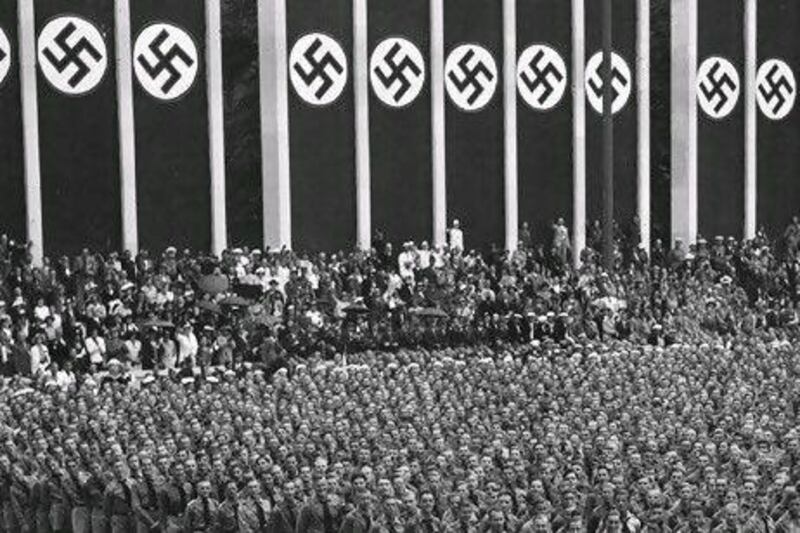Athens 1896
Athens hosted an attractive sports festival, although only 14 countries attended the first modern Games. The Greeks were rewarded for their initiative and enthusiasm when Spiridon Louis won the marathon to a tumultuous reception in the Panathinaiko stadium.
Nine sports were included with James Connolly, a New Yorker of Irish extraction, becoming the first modern Olympic champion with his victory in the triple jump.
Paris 1900
Staged as an appendage to the five-month World Exhibition, the Paris Games were an organisational shambles with the marathon finishing in disarray and discord.
French winner Michel Theato was unaware for 12 years that he was an Olympic champion. Meanwhile, the Americans disputed the decision, maintaining that their man Arthur Newton had not been overtaken after taking the lead at the halfway point. Another American, Alvin Kraenzlein, was the outstanding athlete, winning the 60 metres, the 110m and the 200m hurdles, and the long jump.
He set world records in each of the track events on grass in the Bois de Boulogne.
St Louis 1904
Again the Games were a sideshow, this time to the World's Fair, with the grotesque addendum of an "Anthropology Day" during which various ethnic groups performed in so-called primitive sports such as mud-throwing.
The overwhelming majority of the athletes were American with James Lightbody winning the steeplechase, 800m and 1500m. Archie Hahn won the 60m, 100m and 200m.
Fred Lorz finished first in the marathon and was congratulated by Theodore Roosevelt, the president, before it was discovered he had hitched a ride on a truck during the race.
London 1908
London was awarded the Games in place of Rome after the eruption of Vesuvius and once again the marathon provided high drama.
Italian Dorando Pietri was first into the stadium on a hot, sultry July day but was clearly disorientated, circling the track the wrong way and then collapsing.
He was helped across the line by officials which sparked a protest from the US team, upheld when John Hayes was awarded the title.
Although a great success, the Games took place against a backdrop of acrimony and feuding between Britain and the United States.
The mutual antagonism came to a head when officials disqualified American winner John Carpenter and ordered a rerun of the men's 400m. Carpenter and his two American team mates boycotted the rerun, leaving the sole remaining runner, Wyndham Halswelle of Britain, to jog unopposed to the title.
Stockholm 1912
The prolonged Scandinavian summer days and a splendid new stadium in the Swedish capital enhanced a memorable Games which featured possibly the best all-round athlete in Olympic history.
Jim Thorpe won five of the individual events in the decathlon and four in the now-discontinued pentathlon. Six months later his medals were stripped because he had received money for playing semi-professional baseball.
Hannes Kolehmainen, first of the great Finnish runners who were to dominate the long-distance events, finished first in the 5,000m, 10,000m and the cross-country and Hawaii's Duke Paoa Kahanamoku, the father of surfing, won his first 100m freestyle title in swimming.
Antwerp 1920
Although badly damaged during the First World War, Antwerp rose to the challenge of an Olympics, albeit with spartan accommodation and facilities.
Paavo Nurmi, the most versatile distance runner in history, won gold medals in the 10,000m and the individual and team cross-country events athletes in an outstanding Finnish team that won 34 medals overall.
Paris 1924
Finn Nurmi was unstoppable, winning the 1500m and 5,000m gold medals in Olympic record time although the finals were staged within the space of an hour.
On the following day, at the height of a Parisian heat wave, he won the individual cross-country while many of his opponents collapsed in distress.
Including team events, Nurmi was to finish his Olympic career with nine gold medals and believed he could have secured another had he been entered for the 10,000m in Paris.
In the pool, Johnny Weissmuller won the men's 100m and 400m freestyle and Briton Harold Abrahams became the first European to win the men's 100m.
Amsterdam 1928
Finns were again to the fore with Nurmi winning his final title in the 10,000m and his teammates winning the 1500m, 5,000m and all three places in the steeplechase. Uruguay beat Argentina 2-1 in the football final, two years before securing the first World Cup.
Dhyan Chand led the India hockey team to the first of three gold medals.
Los Angeles 1932
Film star glamour in Hollywood's golden age while the world struggled with the Great Depression drew a record 101,000 spectators to the opening ceremony at the Coliseum.
More than one million spectators attended a Games in which 19-year-old Babe Didrickson, a champion in any sport she turned her hand to, won the javelin and the 80m hurdles and finished second in the high jump.
Japan dominated the men's swimming events in a sign that Olympic sports were spreading beyond their traditional heartlands in Europe, North America and the British Empire.
Berlin 1936
Under the shadow of the swastika, Jesse Owens, a grandson of a slave, won the 100m and 200m, the long jump and picked up a fourth gold medal in the 4x100m relay.
Jack Lovelock won the first of New Zealand's three Olympic 1500m titles in world record time and Helen Stephens took the gold medal in the women's 100m and then firmly rejected Adolf Hitler's advances.
Politics also intruded in the men's marathon where the winner, Sohn Kee-chung, of Korea was forced to compete under the imposed name of Kietei Son after the Japanese invasion.
sports@thenational.ae
Follow us
[ @SprtNationalUAE ]





